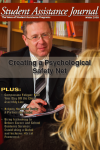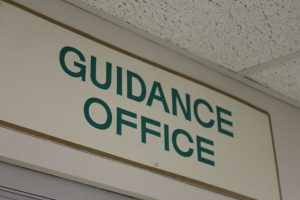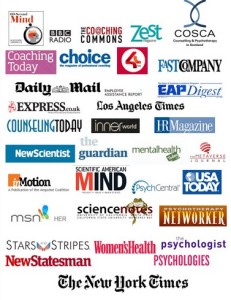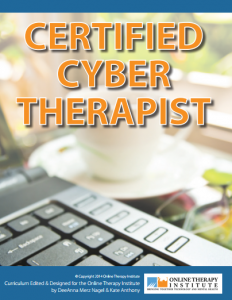Competent career and school guidance professionals using technology as part of their practice will always adhere at least to the following minimum best practices and standards to be considered working in an ethical manner.
Career and school guidance practitioners’ relationship to existing professional ethical and best practices standards and licensing.
Career and school guidance practitioners must adhere to their existing licensing and certification ethical and best practices standards. The following ethical framework in this document embodies existing licensing, certification and professional organization standards. Additional recommendations are made based on new technological developments.
Career and school guidance practitioners have a sufficient understanding of technology.
Technology basics are required for career and school guidance practitioners who choose to deliver services via technology. Career and school guidance practitioners must be current in relation to using secure technology and ethical standards (i.e. electronic or computer technology, telephone-cell and land line, answering machines, facsimiles, television) to ensure the confidentiality of all transactions related to the client.
Career and school guidance practitioners will possess a basic understanding of technology as the technology relates to delivery of services:
· Encryption: Career and school guidance practitioners understand how to access encrypted services to store records and deliver communication. Records storage can be hosted on a secure server with a third-party, stored on the career and school guidance practitioner’s hard drive utilizing encrypted folders or stored on an external drive that is safely stored.
· Backup Systems: Records and data that are stored on the career and school guidance practitioner’s hard drive are backed up either to an external drive or remotely via the Internet.
· Password Protection: Career and school guidance practitioners take further steps to ensure confidentiality of therapeutic communication and other materials by password protecting the computer, drives and stored files or communication websites.
· Firewalls: Career and school guidance practitioners utilize firewall protection externally or through web-based programs.
· Virus Protection: Career and school guidance practitioners protect work computers from viruses that can be received from or transmitted to others, including clients.
· Hardware: Career and school guidance practitioners understand the basic running platform of the work computer and know whether or not a client’s hardware/platform is compatible with any communication programs the career and school guidance practitioners uses.
· Software: Career and school guidance practitioners know how to download and operate software and assist clients with the same when necessary to the delivery of services.
· Security Updates: Career and school guidance practitioners utilize security software that incorporates frequent security updates to protect the confidentiality of client interactions.
· Third-party services: Career and school guidance practitioners utilize third-party services that offer an address and phone number so that contact is possible via means other than email. This offers a modicum of trust in the third-party utilized for such services as backup, storage, virus protection and communication.
Career and school guidance practitioners work within their Scope of Practice.
Scope of Practice indicates the specific area to which a career and school guidance practitioner may practice. Scope of practice in many geographic areas also defines where career and school guidance practitioners may practice; whether the career and school guidance practitioner may practice across various geographical boundaries and within what parameters a career and school guidance practitioner may practice. Career and school guidance practitioners also follow local and regional laws and codes of ethics as applicable.
· Understanding of boundaries and limitations of one’s specific discipline: Career and school guidance practitioners understand which assessments and interventions are allowed within their specific discipline. For instance, practitioners who have no training in psychotherapy generally do not provide these services.
· Understanding of specific laws or ethics within one’s own discipline or geographic location: career and school guidance practitioners understand the limits set forth by laws or ethics within the applicable geographic location. For instance, Licensed Professional Counselors trained in career and school guidance need to seek assistance as to what limitations if any their licensing board has established to provide career counseling across state lines. Certain states dictate what career and school guidance practitioners can be called due to the implementation of Title laws. Practice laws may prevent a licensed career and school guidance practitioner from interpreting certain tests in one state, yet the same practice may be accepted under practice law in another state.
· Respect for the specific laws of a potential client’s geographic location: career and school guidance practitioners understand that different geographic regions may offer additional limits to practice, particularly with regard to jurisdiction.
Career and school guidance practitioners seek out training, knowledge and supervision.
Training, knowledge and supervision regarding career and school guidance and technology is paramount to delivering services that is considered “best practice” within one’s geographic region and within a global context. Career and school guidance practitioners are encouraged to demonstrate proficiency and competency through formal specialist training for the use of technology in providing career and school guidance services. Peer supervision and support is recommended for career and school guidance practitioners who cannot practice independently within a geographic region and is highly recommended for all career and school guidance practitioners.
· Formal Training: Career and school guidance practitioners seek out sufficient formal training, whenever possible through college, university or private settings that can satisfy certification and/or licensing requirements. Formal training and credentials is displayed on the career and school guidance practitioner’s website.
· Professional Development Training: Career and school guidance practitioners seek out continuing education and professional development and conferences, conventions and workshops.
· Peer-reviewed Literature: Career and school guidance practitioners read peer-reviewed literature that includes the latest theories and research.
· Popular Media: Career and school guidance practitioners are informed through popular media such as magazines, newspapers, social networking sites, websites, television and movies and understand the impact providing career and school guidance services.
· Peer Supervision: Career and school guidance practitioners seek supervision whenever the career and school guidance practitioner cannot practice independently within his or her geographic location. All career and school guidance practitioners who deliver services via technology seek supervision.
Example Topics of study related to Training, Knowledge and Supervision (not an exhaustive list):
- Online Career Counseling
- Online Supervision
- Online Peer Supervision
- Online Assessment Instruments Administration and Interpretation
- Telephone Counseling
- Avatar Counseling
- Cyberpsychology
- Text-based Counseling
- Telecounseling
- Online Job Search
- Chat Counseling
- Blogging
- Online Career Information
- Online Relationships
- Online Assessment
- Second Life
- Using Twitter (tweeting)
- Online Peer Support
- SMS Text Messaging
- Virtual Worlds
- Career Counseling and Technology
- Web Development and Reliability
Career and school guidance practitioners display pertinent and necessary information on Websites.
Websites provide access to information for the general public, potential clients, clients and other professionals.
· Career, school and personal crisis intervention information: People may surf the Internet seeking immediate help. Career and school guidance practitioners display crisis intervention information on the home page. Career and school guidance practitioners understand that people in career and/or personal crisis may visit the website from anywhere in the world. Offering global resources such as Befriender’s International, The Samaritans and/or how to reach a specific country’s career information web resources is the best course of action.
· Career and school guidance practitioners contact Information: Career and school guidance practitioners offer contact information that includes email, postal address and a telephone or VOIP number. While it is not recommended that postal addresses reflect the career and school guidance practitioner’s home location, clients should have a post address for formal correspondence related to redress, subpoenas or other mailings requiring a signature of receipt. Career and school guidance practitioners state the amount of time an individual may wait for a reply to email or voice mail. Best practice indicates a maximum of two business days for inquiries.
· Career and school guidance practitioners’ education, license and/or certification information: Career and school guidance practitioners list degrees, licenses and/or certifications as well as corresponding numbers. If the license, certification board, or professional body offers a website that allows the general public to verify information on a particular Career and school guidance practitioners the license and certification listings should link directly to those verifying body websites. Career and school guidance practitioners consider listing other formal education such as college or university courses, online continuing education and professional development courses, and conference/convention attendance directly related to mental health and technology.
· Terms of use and privacy policy: Terms of Use, often all or in part, synonymous with a career and school guidance practitioner’s informed consent, is available on the website either as a page on the website or a downloadable document. The career and school guidance practitioner’s privacy policy is also available in the same way and offers information about if or how email addresses, credit card information and client records are used, shared or stored. Career and school guidance practitioners must ensure that they comply with the requirements of the Data Protection Act and other aspects of applicable law, and in the United States, Career and school guidance practitioners display the Notice of Privacy Practices to indicate compliance with HIPAA and FERPA. Applicable information regarding privacy and confidentiality that are required for client consent in the geographic location of the career and school guidance practitioners should be posted on the website as well.
· Encrypted transmission of therapeutic and payment information: Career and school guidance practitioners offer secure and encrypted means of therapeutic communication and payment transactions. Email and chat programs, whether embedded within the career and school guidance practitioners site or utilizing 3rd party platforms such Hushmail or Cryptoheaven, are explained on the website. Payment methods are explained as well through merchant information or information provided by the career and school guidance practitioners.
Career and school guidance practitioners conduct an initial intake and screening process.
The initial screening and intake process begins with the potential client’s first contact. The career and school guidance practitioner implements formal and informal measures for screening a client’s suitability for delivery of mental health services via technology.
· Client’s Technology Skills: Career and school guidance practitioners screen potential client’s use of technology through questions at the outset. Questions include but are not limited to an inquiry about the client’s experience with online culture e.g. email, chat rooms, forums, blogging, social networks, instant messaging and online purchasing, mobile texting, VOIP or telephones. Career and school guidance practitioners ensure that the client’s platform is compatible with the varying programs and platforms the career and school guidance practitioner may utilize during the course of therapy.
· Client’s Language Skills: Career and school guidance practitioners screen for language skills from the initial contact through the first few exchanges. Assessing for language barriers, reading and comprehension skills as well as cultural differences is part of the screening process. Text-based career and school guidance services may also involve screening for keyboarding proficiency.
· Presenting Issue, client identity and clinical concerns: Career and school guidance practitioners screen to ensure the presenting issue is within the scope of practice and knowledge base of the career and school guidance practitioners. Intake screening should assess the degree of personal crises in addition to career and school guidance issues to determine that a possible immediate crisis are formally addressed through an intake questionnaire or first exchange. Career and school guidance practitioners incorporate a mechanism for verifying identity of clients by asking for a formal identification number such as Driver’s License, school ID or other satisfactory method. The client must not be anonymous, offering at a minimum: first and last name, home address, and phone number for emergency contact. Minors must be identified as applicable through parental consent and FERPA confidentiality policies must be followed.
Administration and Interpretation of Online Assessment Instruments
Assessments instruments when used must follow ethical practices for the administration and interpretation of these instruments. When offering these assessments online career and school guidance practitioners should adhere to the following:
· Training and Knowledge: Career and school guidance practitioners are trained in the specific assessment instrument including application for online use.
· Applicability for Online Use: Career and school guidance practitioners review the assessment instrument technical manual to determine if the instrument has been researched for online use.
· Administration and Interpretation: Career and school guidance practitioners review the technical manual recommendations to administer and interpret assessment using technology.
· Client Referral: Clients should be referred to a competent professional to provide face-to-face assessment interpretation if there is evidence that the client does not understand the assessment results.
Referral
There may be a number of reasons to refer a client for face-to-face counseling:
· Client technology access: A client may not have access to appropriate secure technology.
· Client technology competence: It is determined that the client would not be able to benefit from technology counseling applications. The Career and school guidance practitioners will provide information how to receive face-to-face counseling services in their geographic area.
· Referral resources: Clients may be recommended to use national resources such as the United Way 211 resource line, One-Stop Career Centers, Befrienders.
Use of Web Career Counseling Resources
Career and school guidance practitioners should have confidence in the value of the web sites that are being recommended for clients. This includes:
· Criteria to recommend a web resource: Career and school guidance practitioners should use the web review standards such as those of the National Career Development Association, Association of Computer-based Career Information Systems and the Web Accessibility Initiative.
· Source and Currency: Career and school guidance practitioners should be confident in the source and currency of the web information and know the strengths and limitations of the information. Web sites should include information how often the data is updated and the source of the information. Generally speaking those career web sites recommended by professional and government organizations can be the most useful.
· Job Posting Information: Job posting web sites should include how long the posting has been on the site and how the information is updated. All job posting information should adhere to all applicable laws.
Career and school guidance practitioners offer an informed consent process.
The informed consent process begins when the client contemplates accessing services. Therefore, clear and precise information is accessible via the Career and school guidance practitioner’s website. The informed consent process includes a formal acknowledgement from the client to career and school guidance practitioners. This acknowledgement is received via encrypted channels. Informed consent content is revisited during the course of career counseling as necessary and beneficial.
The following topics are addressed within Informed Consent:
· Possible advantages and disadvantages of the use of technology in providing career and school guidance services: Information is disseminated about the pros and cons of the use of technology in career and school guidance including such disadvantages as lack of visual and auditory cues and the limitations of confidentiality via technology, and advantages that include easy scheduling, time management and a no need to incur transportation costs.
Confidentiality and Technology
· Encryption: An explanation about the use of encryption for therapeutic exchanges and lack of encryption if/when unencrypted methods (standard email, forum posts, mobile telephone, SMS texting, social networking) are used for issues such as appointment changes and cancellations.
· Career and school guidance practitioners as “Owner of the Record”: Unless otherwise specified through law in the career and school guidance practitioner’s geographic location, the career and school guidance practitioner remains the owner of the service record including all transcripts, notes and emails. The client is informed that posting direct information about the counselor or verbatim information from sessions is prohibited.
· File Storage Procedures: The client is informed about how records are stored (web-based, third party or hard-drive/external drive) and for how long the records are maintained. All procedures conform to the standards laid down in applicable law and as required by any relevant authority (such as professional body) and, at least, include encryption and password protection and a commitment to destroy all records after a given period as required by law/regulation/best practice.
· Privacy Policy: The career and school guidance practitioner’s privacy policy is also included in the Informed Consent process including information about how email addresses, credit card information and client records are used, shared or stored. In the United States, career and school guidance practitioners must include the, when applicable, Notice of Privacy Practices to indicate compliance with HIPAA and FERPA. Applicable information regarding privacy and confidentiality that are required for patient consent in the geographic location of the career and school guidance practitioners are included in the Informed Consent process.
Other Informed Consent Issues
· Career and school guidance practitioner’s geographical jurisdiction: The physical location of the career and school guidance practitioners is offered in the Informed Consent and if the career and school guidance practitioner is licensed within a specific jurisdiction, the Informed Consent states client understands services are rendered under the laws or jurisdiction of the relevant country, state or region.
· How to proceed during a technology breakdown: The client is informed about how to proceed if a technology breakdown occurs during a session, e.g. “If we disconnect, try to reconnect within 10 minutes. If reconnection is not possible, email or call to reschedule an appointment.”
· Emergency contact: Career and school guidance practitioners offer specific information about who to contact in case of an emergency and set specific rules about emergency emails that the career and school guidance practitioners may not be privy to e.g. (threatening posts on a support forum). Career and school guidance practitioners research local resources within the client’s geographic area as emergency backup resources.
· Cultural specifics that may impact counseling: Career and school guidance practitioners discuss varying time zones, cultural differences and language barriers that may impact the delivery of services. Career and school guidance practitioners should also ensure at or prior to the start of services, that the client’s expectations of the service being offered (such as the meaning of the term ‘guidance’ etc) is sufficiently close to their own understanding and should take into account that different cultures around the world can have very different understandings of these matters.
· Dual relationships: Career and school guidance practitioners discuss with clients the expected boundaries and expectations about forming relationships online. Career and school guidance practitioners inform clients that any requests for “friendship,” business contacts, direct or @replies, blog responses or requests for a blog response within social media sites will be ignored to preserve the integrity of the helping relationship and protect confidentiality. If the client has not been formally informed of these boundaries prior to the career and school guidance practitioners receiving the request, the career and school guidance practitioner will ignore the request via the social media site and explain why in subsequent interaction with the client.
· Insurance, subsidy or reimbursement information: If the client resides in a geographic area that generally accepts insurance or other forms of reimbursement for services, the career and school guidance practitioner informs the client of this information. Conversely, services delivered via technologies that are not covered at all or at the same rate, the career and school guidance practitioners informs the client of this information also.
©2009 DeeAnna Merz Nagel & Kate Anthony, Online Therapy Institute, Inc.
 This Framework adapted from OTI’s Mental Health Framework for Career and School Guidance by Harvey Schmelter-Davis and was published in full:
This Framework adapted from OTI’s Mental Health Framework for Career and School Guidance by Harvey Schmelter-Davis and was published in full:
Schmelter-Davis, H., Anthony, K. Nagel, D. M. (2009). Using technology to deliver career and school guidance services: Establishing a global and inclusive ethical framework. Student Assistance Journal. 21 (3), 26-34.
Read the article here.
..

This work by Online Therapy Institute, Inc. is licensed under a Creative Commons Attribution 3.0 Unported License.



